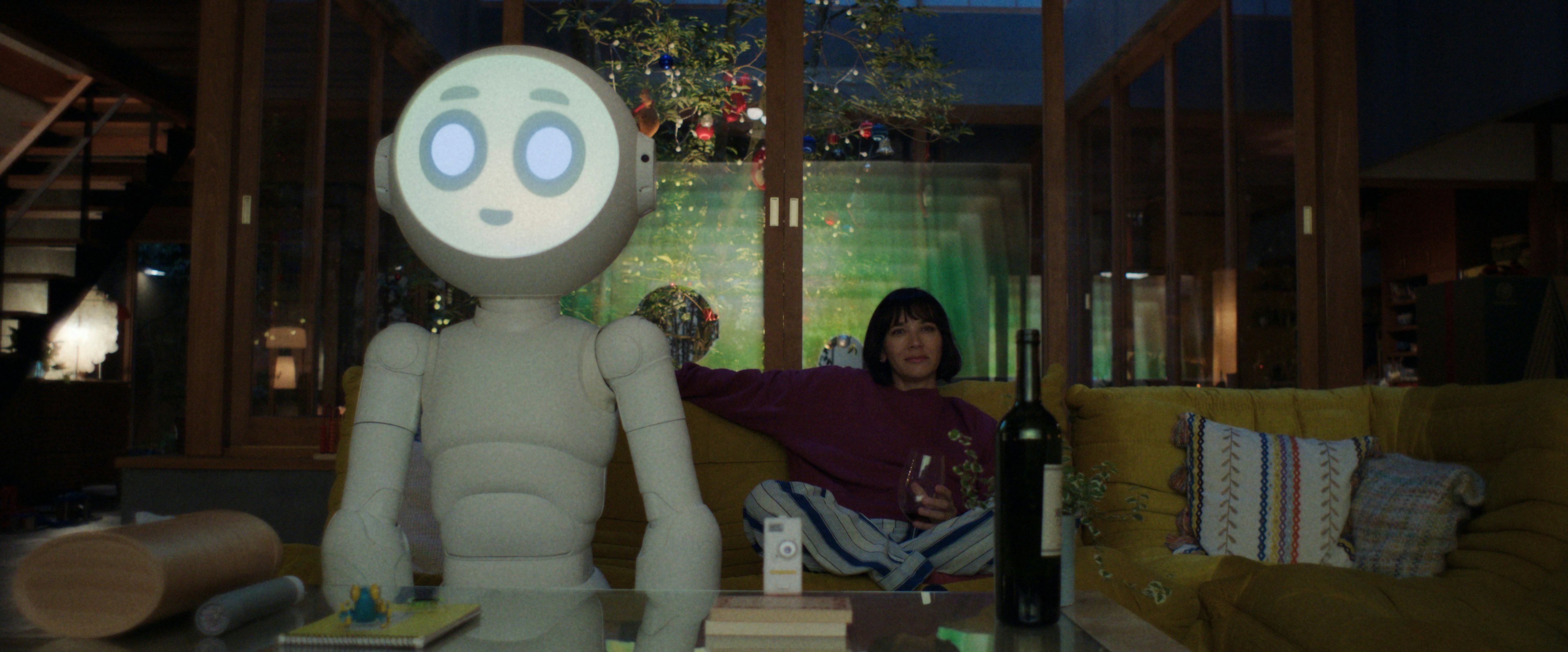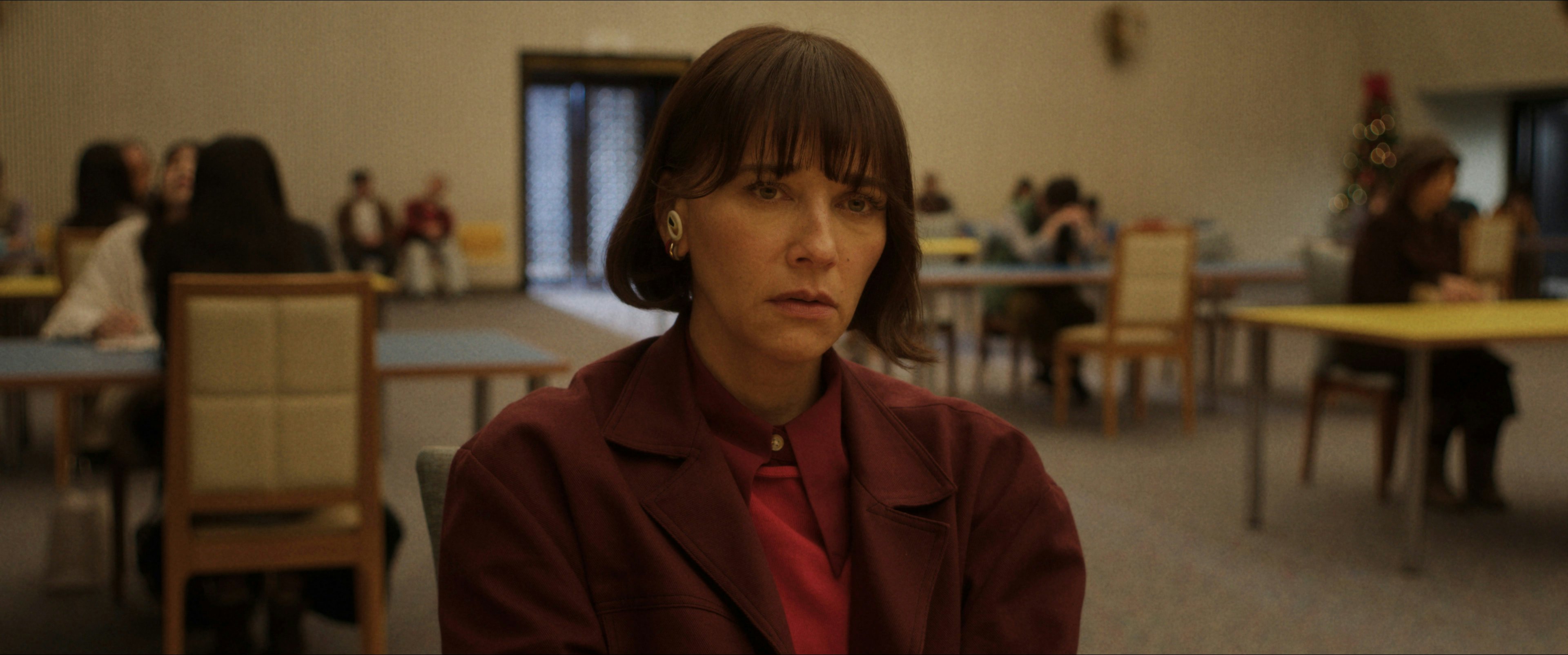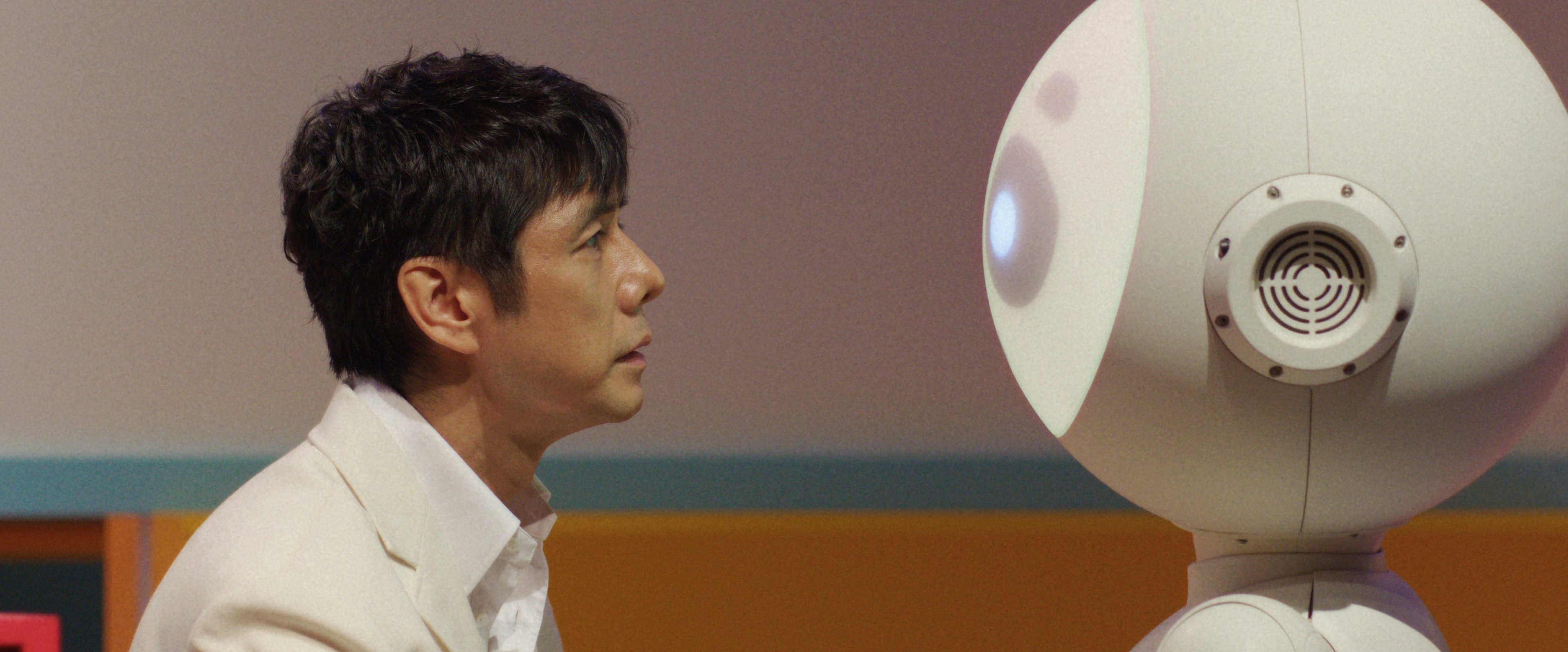
Faulty memories and all the ways trauma can reshape recollections run amok in Sunny, the newest binge-worthy thriller on Apple TV+ and the surprise must-see of the summer. Beyond its arresting pulp aesthetics and an imaginative vision of a tech-centric reality that is well within our current reach, Sunny delights as a delectable character-driven mystery with a sharp black comedy edge.
But while Sunny is a show that is more than the sum of its shiny parts, thriving on all of its strengths to muscle past its few but glaring flaws, it unfortunately revolves around a central mystery that just doesn't grip tight enough.
It's not accurate to describe Sunny's overall vibes as, say, "Coen Brothers meets Seijun Suzuki's Tokyo Drifter" or "Big Hero 6 meets Lost in Translation," but those all feel like proper starting points. An adaptation of Colin O'Sullivan's sinewy tech noir novel The Dark Manual, Sunny revolves around acerbic housewife Suzie Sakamoto, an American woman living in Japan played by an oily and vinegar-y Rashida Jones. When we meet Suzie, she's in the sudden throes of grief, ears still ringing from deafening revelation: her husband Masa (an ethereal Hidetoshi Nishijima) and their young son Zen were in a fatal plane crash.
Suzie's pain keeps her from remembering critical details: the material of her husband's clothing, the color of her son's shoes. Soon that pain disrupts even her mental playback of happier times. But Suzie isn't alone for long. As Sunny progresses — and it does at quite a breezy pace — she is joined by an adorable "bot" and the show's namesake, Sunny. Sunny is an android assistant, a cutting-edge model in a popular line of artificially intelligent domestic helpers from tech giant ImaTech. Standing at half the average human height and on a wide wheeled base, Sunny is at first blush derivative of other sci-fi mascots, until voice actress Joanna Sotomura mines deeper into Sunny's harrowing lore. Her upspeak and emoji-shaped naivete imbue living human breath to make Sunny irresistible and demanding of our protective feelings.

As Suzie starts to lower her guard around Sunny, Suzie grows irritated by the unsatisfactory resolution of her family's demise. Feeling that the math doesn't add up, like the fact her husband was not a humble refrigerator engineer but actually Sunny's chief designer, Suzie and Sunny team up — along with a bilingual bartender named Mixxy (annie the clumsy) — to seek out the truth while evading Suzie's overbearing mother-in-law Noriko (a delirious Judy Ongg) and lethal yakuza who are bizarrely after Sunny.
There's a lot more to love than hate with Sunny. The show is a tonally diverse serialized drama that evens out its abundant sadness over familial grief with buoyant humor, resulting in a generally pleasing personality. It is made all the more watchable thanks to magnificent filmmaking: the show is full of breathtaking set design, energetic camera movements inside drool-worthy escapist locales, and a ballet of elaborate blocking and lighting that make even a meet-cute at a ramen vendor feel fated. This is to say nothing of a standout penultimate episode that masterfully mimics the surreal hysteria of Japanese game shows. Sunny is unpredictable as it is original, beautifully rendered as it feels alive with spontaneity and chaotic energy.

Despite her voice-only presence, Sotomura impressively steals the occasional scene thanks to her multi-dimensional performance as Sunny. (It helps that Sunny is as cute as a button.) But the true centerpiece of Sunny remains its human characters. While Judy Ongg chews her role as Suzie's nightmarish but sympathetic in-law, and Nishijima again takes space as a haunted hot guy (as he was in Drive My Car and his superhero series Kamen Rider Black Sun), Sunny is truly the coming out party for Rashida Jones as an exceptional talent. Portraying a prickly character whose main gesture of love is two middle fingers in the air, Jones towers as a foul-mouthed foreigner who sticks out even as she blends in with enviable city boy style. Across Sunny's 10 episodes, Jones flexes range that showcase her as a performer deserving of more accolades and recognition beyond being a nice funny lady on NBC sitcoms.
The primary objective of Sunny is its function as a mystery. I hesitate to call it a murder mystery, both for spoiler reasons and because it really is more complicated than that. Regrettably, Sunny just barely clears that core programming, unspooling a forward-moving but overwritten tale of intrigue that inspires just enough surrender to let the autoplay feature take the wheel but maybe not enough to stop us from browsing our phones while watching. Confusing yakuza power grabs, juiceless revelations, and muddled overarching themes keep Sunny from shining too bright, but it hardly derails the experience completely. We're so focused on its characters, so locked-in on Rashida Jones cussing out a sad robot or bickering with her uncompromising in-law, that the show's main plot frequently feels like an afterthought. But it may help that Sunny has a literal last-minute knife twist that will undoubtedly stir demand for a second season.
With this summer’s dearth of meaty appointment shows that aren't already spun from bigger franchises, Sunny strolls in with a wink on a blood-soaked face. Sunny is hilarious and heartfelt, a mixture of measurements that all compensate for its shortcomings. It doesn't quite succeed at its most critical task, and anyone seeking a condemning treatise on the imminent threat of artificial intelligence will be left wanting. (Sunny comes off agnostic, if not completely unbothered.) By sheer willpower, it effortlessly commands a spot in your TV rotation until the temperature cools. Sure, there may be better mystery shows across all those streaming libraries. But switch on Sunny and you'd be hard pressed to remember them.







